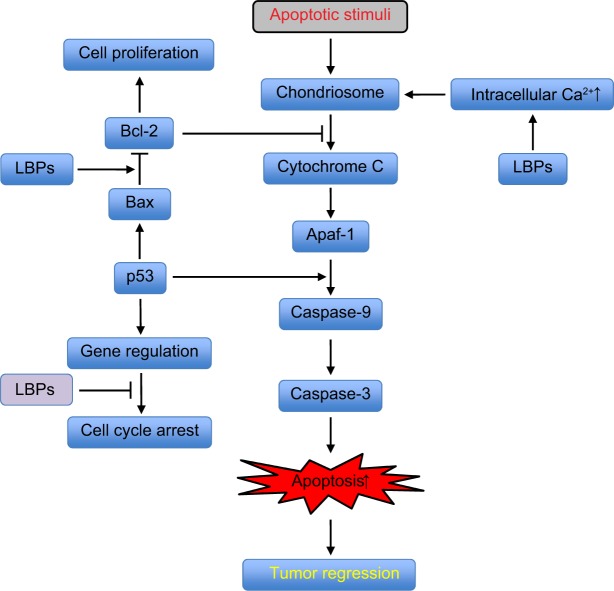Figure 4.
Possible mechanisms for the anticancer activities of LBPs.
Notes: LBPs inhibit the proliferation of various types of cancer cells and induce cell cycle arrest at the G0/G1, S, or G2/M phase. LBPs inhibit the growth of cancer xenografts in nude mice. In cancer patients, LAK/IL-2 plus LBP treatment leads to more marked increase in NK and LAK cell activity than LAK/IL-2 alone. LBPs regulate the expression of Bcl-2 and Bax to induce tumor cell apoptosis via increasing intracellular Ca2+ concentration and mitochondrial pathway. LBPs inhibit the growth of MCF-7 cells through activation of Erk1/2 and modulation of estrogen metabolism. LBPs downregulate the expression of cyclin D, cyclin E, and CDK2 in colon cancer cells. LBPs stimulate p53-mediated apoptosis in liver cancer cells due to inhibition of NF-κB.
Abbreviations: LBPs, Lycium barbarum polysaccharides; IL-2, interleukin-2; NK, natural killer; LAK, lymphokine activated killer; MCF-7, Michigan Cancer Foundation-7; CDK2, cyclin-dependent kinase 2; NF-κB, nuclear factor κB.

